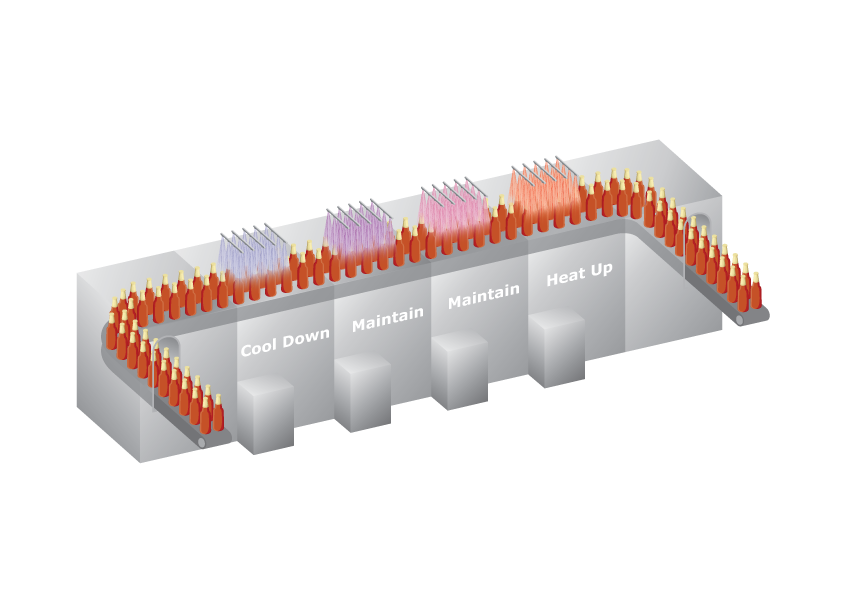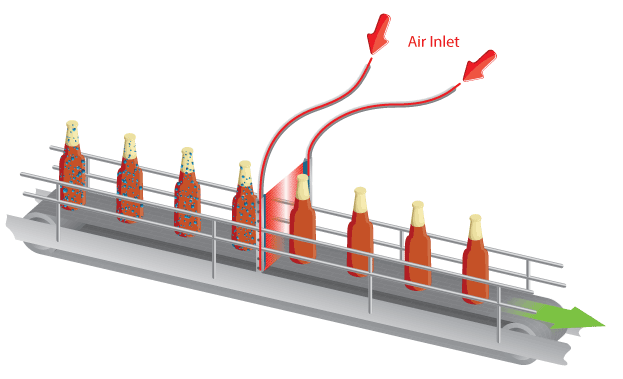Pasteurising tunnels

Spray nozzles are used extensively in pasteurising tunnels. In these systems the target of the pasteurisation process is passed through a spray tunnel. Warm water is sprayed onto the target to heat it to the required pasteurisation temperature. It is then held at this temperature for the required time for microbial retardation and then gently cooled with a cooling spray.
The use of sprays, rather than baths of liquid, allows for a more precise control of the heating and cooling stages. The nozzles serve to greatly increase the surface area of the liquid and increase heat transfer. This means less energy is wasted and the efficiency of the system is improved.
Spray nozzle selection
Spray pasteurisation tunnels require many nozzles spraying in close proximity to the product. In an ideal world the objective is to give the target a consistent and even coverage of small droplets. These small droplets will rapidly transfer heat to the target (in the warming phase) or away (in the cooling phase).
The most commonly used spray nozzles are hollow cones as these produce the smallest droplets. The uneven ring like spray pattern is compensated for by having multiple overlapping spray patterns. The overlapping hollow cone patterns give an even distribution of small droplets which facilitate an even and rapid heat transfer. Another advantage of hollow cone nozzles is that they are commonly available in tangential whirl designs which help save space when head room is limited.

Air nozzle selection
The cooling phase of the pasteurisation process can also be accomplished by using direct jets of cool air. This not only cools but dries the product. A steady stream of cool relatively high impact air generated from air blades can achieve this.